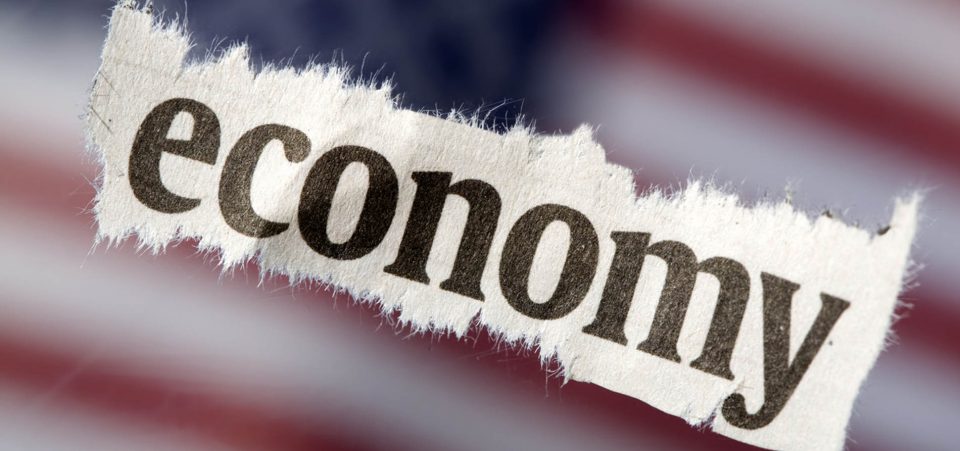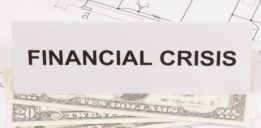Ray Dalio’s Economic Predictions for 2017
What are Ray Dalio’s economic predictions for 2017? Dalio was initially bullish on Donald Trump, and believed that his pro-growth policies would stimulate U.S. economic growth. But Ray Dalio’s prediction for the U.S. economy changed after Trump said he was banning visitors from several countries and announced proposed trade tariffs with Mexico and China. Why did Dalio sour on Trump? Dalio believes populism could be a much bigger game changer than both monetary and fiscal policy.
Should you care what Ray Dalio says? You don’t get to be one of the world’s most successful investors and entrepreneurs because of luck. Because of his investing acumen, Ray Dalio is preposterously rich. Founder of the world’s biggest hedge fund firm, Bridgewater Associates, which managed some $160.0 billion, Dalio has a personal net worth of roughly $17.0 billion; this makes him the 54th richest person in the world.
Dalio has the same kind of pedigree you’d expect from one who runs the world’s biggest hedge fund. At the age of 12, he made his first investment, $300.00 worth of shares of Northeast Airlines. He tripled his investment after the airline merged with another company. By the time he started college at Long Island University, his stock portfolio was worth several thousand dollars.
After graduating, Dalio received an MBA from Harvard Business School. He didn’t spend all of his time in class studying. He traded commodities, grains, oil, cotton, etc. for his own account. After graduating, Dalio was a commodity-futures trader, advising cattle ranchers and others how to hedge risks.
His life took a bit of a turn in 1975. After some questionable behavior at a New Year’s Eve party and convention, Dalio was fired. He persuaded some of his clients to hire him as a consultant and, at the age of 26, founded Bridgewater out of his two-bedroom apartment.
We all know that his hedge fund grew to be the biggest in the world. The question is, in part, why and how did he do it? What distinguishes Dalio from other hedge-fund managers? It’s his in-depth economic analysis and philosophical understanding of the interconnected nature of every facet of life.
“What makes Dalio compelling is not just his track record but the way he goes about making money, and the rigorous analysis he applies to understanding markets, organizations, the economy, and life.” (Source: “Inside the world’s biggest hedge fund,” Fortune, March 19, 2009.)
In addition to being one of the wealthiest people in the world, Dalio has also been named to TIME magazine’s list of the 100 most influential people in the world. Dalio is a modern day Renaissance man: a financial genius and philosopher.
Dalio is a micro investor. This means he looks at economic trends, including the change in exchange rates, inflation, and GDP growth. From this, Bridgwater buys and sells more than a hundred different financial instruments around the world.
In 2007, Dalio predicted that popping of the housing bubble. He also warned the Bush Administration that many of the world’s largest banks were on the precipice of insolvency.
Dalio doesn’t just advise his clients what to buy or sell; that’s impersonal, cold, and devoid of purpose. In October 2008, at the height of the financial crisis, Dalio circulated the 28-page essay, “A Template for Understanding What’s Going On.”
In it, he said the economy was facing a recession and period of deleveraging, where people would cut back on borrowing to rebuild their savings. The impact of which would be felt for a generation. 2008 was a brutal year for the markets and many Bridgewater rivals. But the fund’s flagship Pure Alpha fund advanced by 9.5% that year.
Pain + Reflection = Progress
Henry Ford may have believed that “history is bunk,” but that kind of thinking wouldn’t get him far on Wall Street. And he certainly wouldn’t last at Bridgewater. After founding Bridgewater, Dalio realized his returns could improve if he reflected on past mistakes.
This seems pretty straightforward, but most hedge fund managers don’t make a point of writing down their mistakes. Dalio used these principles and developed a personal world view which he then applied to employee management and eventually, into investing principles.
Some of the 210 principles include: Trust in truth (1), Don’t pick your battles, fight them all (96), Evaluate People Accurately, Not Kindly (100), Don’t try to please everyone (210). (Source: “Principles by Ray Dalio,” Principles, last accessed April 11, 2017.)
One of the biggest lessons from Dalio’s management principles, from an investing standpoint, is that: Pain + Reflection = Progress. The stock market operates in cycles. The same things happen over and over again. Everything we’ve been through has happened before. Once you see investing through this lens, you can start to anticipate recurring behavior.
Incredibly, Dalio turned his investing principles into mathematical algorithms to test their accuracy by applying them to past market conditions. This allowed the computer, in Dalio’s words, to “actually think better than I could because what it would do is…it could process more information, it could process it faster, it could process it less emotionally.” (Source: “The head of the world’s largest hedge fund explains how he learned to invest,” Business Insider, April 9, 2017.)
Unlike most hedge fund operators who only speak Wall Street, Dalio takes a rational approach to mindfulness. An approach that extends to every facet of his life, including his management teams.
Being open and transparent, or getting in synch, as Dalio puts it, helps identify everyone’s strengths and weaknesses. Having different perspectives helps people make better decisions and a more diversified team makes the best decisions. When it comes to Dalio’s approach to business, one scientific analysis found that there is a 0.03% chance that Dalio is wrong. (Source: “Decision Guru And Hedge Fund Billionaire Ray Dalio Is Crazy Like A Buddha,” Forbes, April 4, 2017.)
A Rise in Populism Could Help or Hinder the U.S. Economy
What is Ray Dalio’s stock market outlook for 2017? It depends if history really does repeat itself. As you might expect, “Pain + Reflection = Progress” can also be applied to politics. Billionaire Ray Dalio believes that global populism (support for the common person) will be a more powerful economic force than monetary and fiscal policies in 2017.
Dalio observes that Trump’s cabinet posts make it abundantly clear, that the U.S. is going “to experience a profound, president-led ideological shift that will have a big impact on both the U.S. and the world.” (Source: “Reflections on the Trump Presidency, One Month after the Election,” LinkedIn, December 19, 2016.)
By this, Dalio means that Trump will not just change government policy, but how government policy is achieved. Donald Trump is, after all, a deal maker who negotiates hard. And he fills cabinet posts and surrounds himself with those who play the same kind of hardball and will make big changes when it comes to foreign policy, economics, education, environmental policies etc.
During the campaign trail Trump said repeatedly that Obama initiated too many policies that made it difficult for Wall Street to profit and operate efficiently. If elected, Trump said he was going to introduce pro-growth policies that would boost corporate earnings and put more money into the pockets of every day Americans.
Most people might have previously viewed the Democrats as the party that looked after the average American. Labor unions have long supported the Democrats. But during Obama’s reign, the Democrats were more the part of the rich with Obama skipping union halls in favor of Wall Street and Hollywood fundraisers. Of the 10 richest zip codes in the U.S., eight gave more to Democrats than Republicans over the last two presidential cycles.
If he were around to walk the streets of Washington, D.C. today, Franklin D. Roosevelt would be surprised to see the large number of out-of-touch Cristal-sipping Democrats in office.
Just how out-of-touch was Obama with his voters? Organized labor wanted the Keystone pipeline built. Hollywood and billionaires from Silicon Valley were opposed to it. Obama sided with the money.
Analysts can blame Hillary Clinton all they want for why the Democrats lost the election. But the fact is, Obama set the stage for the Trump presidency. Populism, according to Dalio arises from gaps in wealth and opportunity as well as frustration with government inefficiencies. Not only does the economy not work for the average America, Capitol Hill isn’t either.
The rise in populism created the need for a strong leader who said he was going to serve the average American. With his America First platform, Trump was also going to protect the country’s financial, military, and nationalistic interests. As president, it’s Trump’s responsibility to put America First, no the rest of the world.
Despite any missteps, Trump is confrontational and his voters love him. This can have a polarizing effect on voters which could lead to conflict: either in Washington or in the streets. Both of which can undermine economic growth.
In December 2016, as stocks soared on optimism about what a Trump presidency would look like, Dalio said the Trump era could “ignite animal spirits” and attract productive capital. Trump’s cabinet appointees have the same kind of drive he does and it could results in major changes in economic and foreign policy.
At the time, Dalio thought that if the Trump administration could kick start the economy, help people make money, and drive GDP, it would help drive risk-on investments like stocks, higher.
Trump’s pro-growth agenda could also have a massive impact on the U.S. too. Investors would love to pull their money from economically inhospitable environments and move it to a politically stable, pro-business country like the U.S. with favorable tax laws.
But Dalio changed his views in January 2017, saying Trump’s aggressive trade tariff’s, the proposed wall with Mexico, and travel bans could swamp any benefits that come from his pro-business agenda.
This is What We Should Be Paying Attention to in 2017
How the U.S. economy performs in 2017 will depend on how conflict is handled and how populism evolves. Will Washington, D.C. work together or go to war with each other and cause gridlock. Will the U.S. work together with its biggest trading partners or go to trade war. And how will the U.S. handle it’s relationship with countries like North Korea, Syria, Iran, and Russia?
For starters, Ray Dalio does not foresee the U.S. repeating the stock market crash of 1929 or the U.S. entering another Great Depression, or the start of World War III. But investors should expect low returns and a volatile market. (Source: “Bridgewater’s Ray Dalio on when a downturn might come,” Business Insider, April 7, 2017.)
That said, even though the bull market celebrated its eighth anniversary in March, Dalio maintains the bull market is mid-cycle and that stocks are priced, generally speaking, about right.
If the economy continues at its current pace, great. But as we know, the economy never does. While rising national debt is a concern, the U.S. is in a “nice temporary equilibrium within this longer term debt cycle.”
What investors should be concerned with most though, is the rise of populism and its influences. In the 1930s, populism was on the rise, and economically, we’re in a similar spot: wealth gap, large debt, and zero interest rates. Within this environment, there was a sharp rise in populism. If that were to happen in the U.S. investors should be concerned because it would change how the economic conditions work.
In light of that evolution, Dalio is not concerned about a stock market crash in 2017 or 2018. What he is concerned about is what the next downturn will look like. The effectiveness of monetary policy in stimulating economic growth is not, Dalio says, what it used to be. No one knows what kind of tax reforms are going to be passed and how it will affect trade and the U.S. dollar.
Dalio might be a genius when it comes to investing and trading, but he’s in the back seat with the rest of us, waiting to see how the Trump presidency and global political situation pans out.






